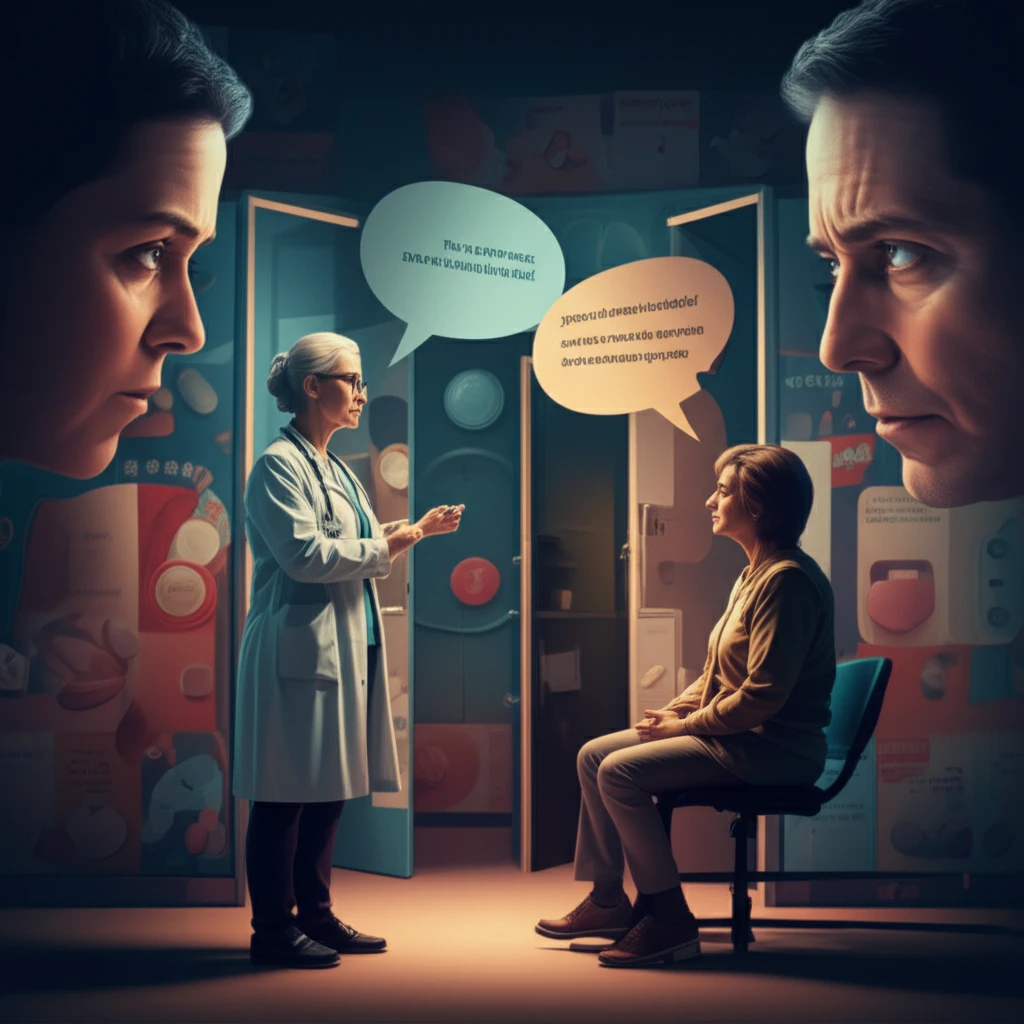
Decoding Doctor-Patient Communication: Why Your Medication Plan Might Be a Silent Struggle
"Uncover the hidden barriers preventing open dialogue between patients and physicians about medication adherence, and learn how to bridge the gap for better health outcomes."
Have you ever felt uneasy telling your doctor that you sometimes miss taking your medication? You're not alone. A significant percentage of patients struggle with medication adherence, and often, these struggles remain unspoken. This article dives into the heart of this communication gap, exploring the reasons behind it and offering insights on how to create a more open dialogue with your physician.
The traditional healthcare model is evolving. We've moved from a paternalistic approach where doctors' orders were followed without question to a more patient-centered approach emphasizing shared decision-making. Yet, despite this shift, many patients still feel hesitant to openly discuss their medication habits, concerns, and beliefs with their doctors.
This reluctance can stem from various factors, including fear of judgment, mistrust of the medical system, or simply not feeling heard. Whatever the reason, this lack of open communication can have serious consequences, hindering effective treatment and impacting overall health outcomes. Let's explore this issue further, drawing insights from a fascinating analysis of online discussions among New York Times readers.
The Mistrust Factor: Why Patients Question the System

One of the most prominent themes emerging from online discussions is a deep-seated mistrust of the healthcare system. This skepticism often extends to pharmaceutical companies, prescription medications, and even the motivations behind doctors' prescribing habits.
- Distrust in the FDA: Some commenters voiced skepticism about the drug approval process, suggesting that fast-tracked approvals may compromise thorough testing.
- Questioning Doctor's Motives: Some patients expressed concern that doctors might be overly influenced by pharmaceutical marketing or driven by financial incentives.
- Focus on Pills vs. Lifestyle: A recurring sentiment was the perception that doctors often prioritize medication over lifestyle changes, even when the latter might be a more sustainable or healthier approach.
Bridging the Gap: Steps Toward Better Communication
The key takeaway is that fostering open and honest communication between patients and doctors is crucial for improving medication adherence and overall health outcomes. This requires a multi-faceted approach, with both patients and physicians taking an active role. Doctors can create a safe space for patients to voice their concerns, actively listening to their beliefs and preferences. Patients, in turn, can empower themselves by becoming informed, asking questions, and assertively communicating their needs. By working together, we can bridge the communication gap and pave the way for more effective and patient-centered healthcare.
